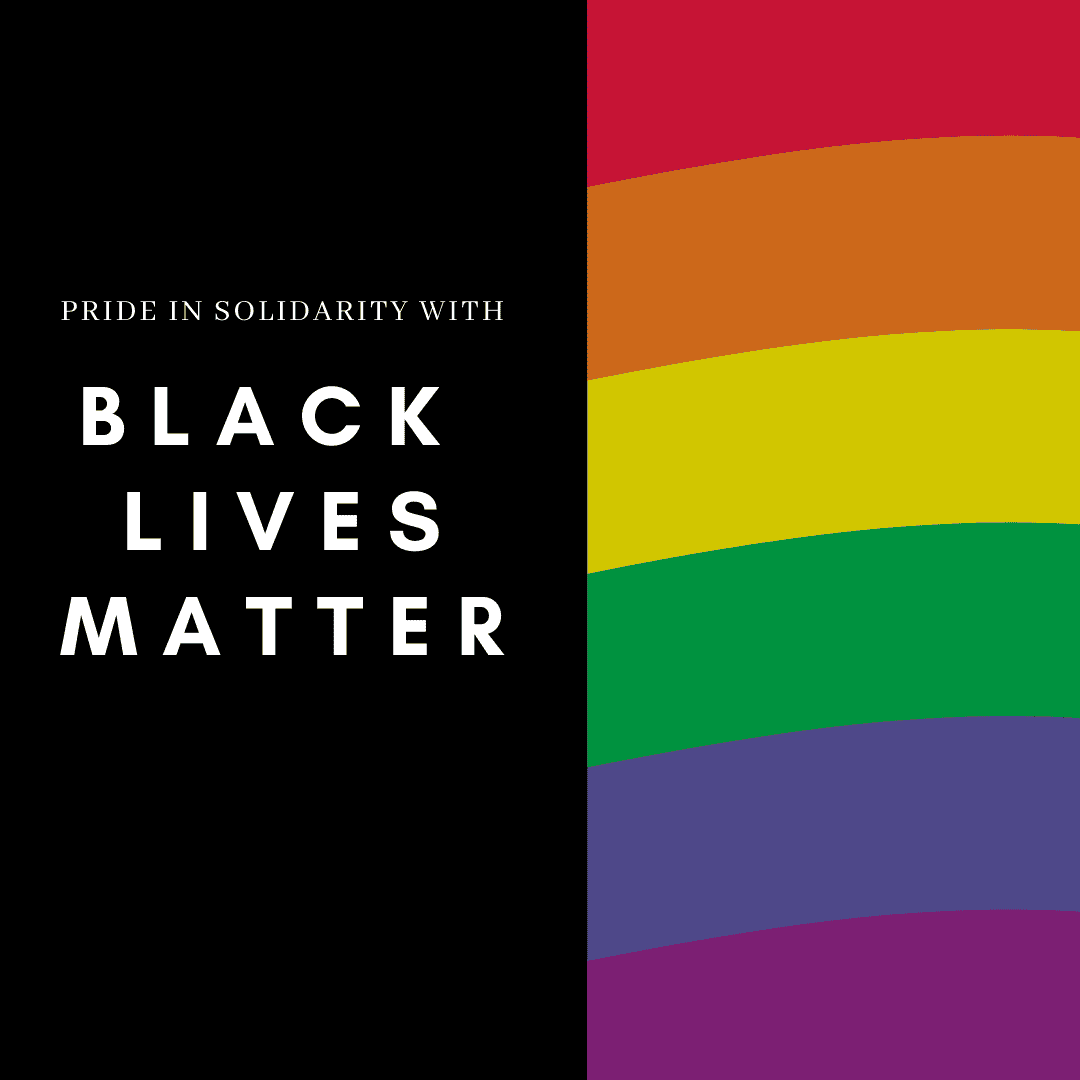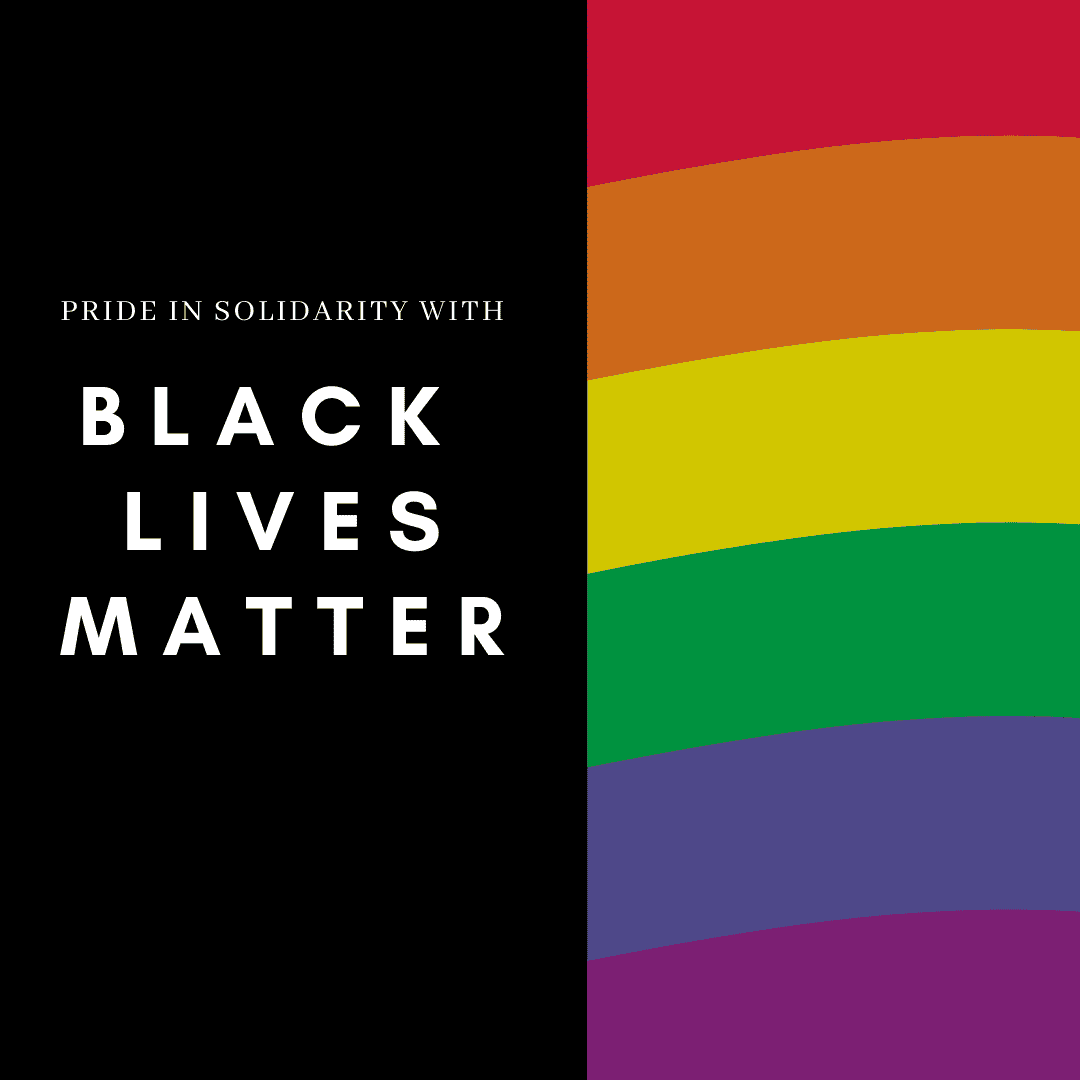In solidarity with Black Lives Matter (plus, resources to lend support)

This Pride Month, Lovin’ Spoonfuls’ Food Rescue Coordinator, Emery Webster, is keeping the focus on Black lives – and how you can support the movement.

My original draft for this blog post was about Pride month and the issue of food insecurity in the queer community. While I still hold that this is an important topic to discuss–nearly 29% of all LGBTQ people in the United States, an estimated 3,029,000 adults, experienced food insecurity in the past year1–it feels wrong to take away any focus from the national attention on the Black Lives Matter movement and the ongoing violence, suppression, and brutality facing the Black community. As a White person, it’s my responsibility to leverage my privilege to direct focus towards the voices and needs of people of color. This is not to say queer food insecurity is a non-Black issue, as the intersection of race and sexual orientation/gender identity exacerbates this problem–37% percent of Black LGBTQ people reported being food insecure in the past year, as opposed to 23% of White LGBTQ people. But this isn’t the time to focus on singular issues.
The current uprisings2 sweeping the nation aren’t just about calling for punitive action against the officers involved in the murder of George Floyd. This is a rebellion against an entire system of racist discrimination and harm in our criminal justice system and our country as a whole. Every singular issue we can point to as wrong is rooted in this. Black queer food insecurity stems from (among other things) histories of education, employment, and housing discrimination faced by both the Black and LGBTQ communities. Police murder and violence against Black people stems from (among other things) histories of diverting funding away from poor communities of color and towards the protection of property and policy that benefit wealthy people with power in this country. We can address the symptoms of our racist systems in a band-aid style approach, by providing food to food-insecure folks in our community and demanding prosecution and reforms in our police departments–but these issues will continue to persist until the root cause is addressed. While these actions may be necessary for the short term, for the long term we need to dismantle the oppressive systems we live under and reimagine a society that cares for everyone–regardless of race, class, sexual orientation, gender identity, or any other socially constructed differences that oppress us. In the words of activist and organizer DeRay Mckesson, “The goal can’t be just to withstand the trauma, the goal has to be to end it.”3 We need to demand investment in communities affected by poverty and lack of infrastructure. We can turn away from reliance on punitive and criminalizing measures to address social problems, and towards restorative and supportive community measures.
If you can, go out into the streets and stand in solidarity with Black community organizers. However, I know that not everyone can go attend a protest, especially with the COVID-19 pandemic still a major threat. I personally am stepping back from in-the-street activism right now to ensure I don’t bring heightened risk of exposure to the non-profit partners we serve at Lovin’ Spoonfuls. But there are still so many ways we can support protests in our community. Here are a few I’d like to leave with you:
- Keep learning: We all have an obligation to be actively antiracist, but to do so requires educating ourselves about the white supremacist history of our country, seeking out Black voices, and reading up on racial equity and justice. At the bottom of this post I’ve made a resources section with some suggestions for further reading.
- Order food from Black-owned restaurants: Black-owned businesses have historically faced discriminatory barriers to success, and with locally-owned restaurants struggling due to the pandemic, supporting Black-owned restaurants doubles your impact. Here is a spreadsheet with info on Black-owned businesses open in New England right now.
- Make a donation: Provide financial support for organizations both meeting immediate needs and those working towards long-term systemic changes. There are links to organizations and funds to support in the resources section.
Some resources I’ve found helpful—
Further reading
Antiracism/racial literacy
- Of Course There Are Protests. The State Is Failing Black People. – Keeanga-Yamahtta Taylor
- Don’t understand the protests? What you’re seeing is people pushed to the edge. – Kareem Abdul-Jabbar
- You shouldn’t need a Harvard degree to survive birdwatching while black – Samuel Getachew
- How To Be Antiracist – Ibram X. Kendi
- What Does It Mean to Be White? Developing White Racial Literacy – Robin DiAngelo
- The Case for Reparations – Ta-Nehisi Coates
- I’m a Minneapolis City Council Member. We Must Disband the Police – Steve Fletcher
- What To Do Instead of Calling The Police (A Syllabus) – Aaron Rose
Organizations and funds to support
- The Massachusetts Bail Fund
- LGBTQ Freedom Fund
- Reclaim The Block
- Campaign Zero
- Police Use of Force Project
- Black Youth Project
Footnotes
- Food Insecurity and SNAP (Food Stamps) Participation in LGBT Communities – UCLA School of Law
- I’m referring to the actions of protestors as uprisings, protests, rebellions, etc. instead of riots, here’s an article that explains why this language usage matters.
- Quotes from June 2, 2020 episode of Pod Save The People